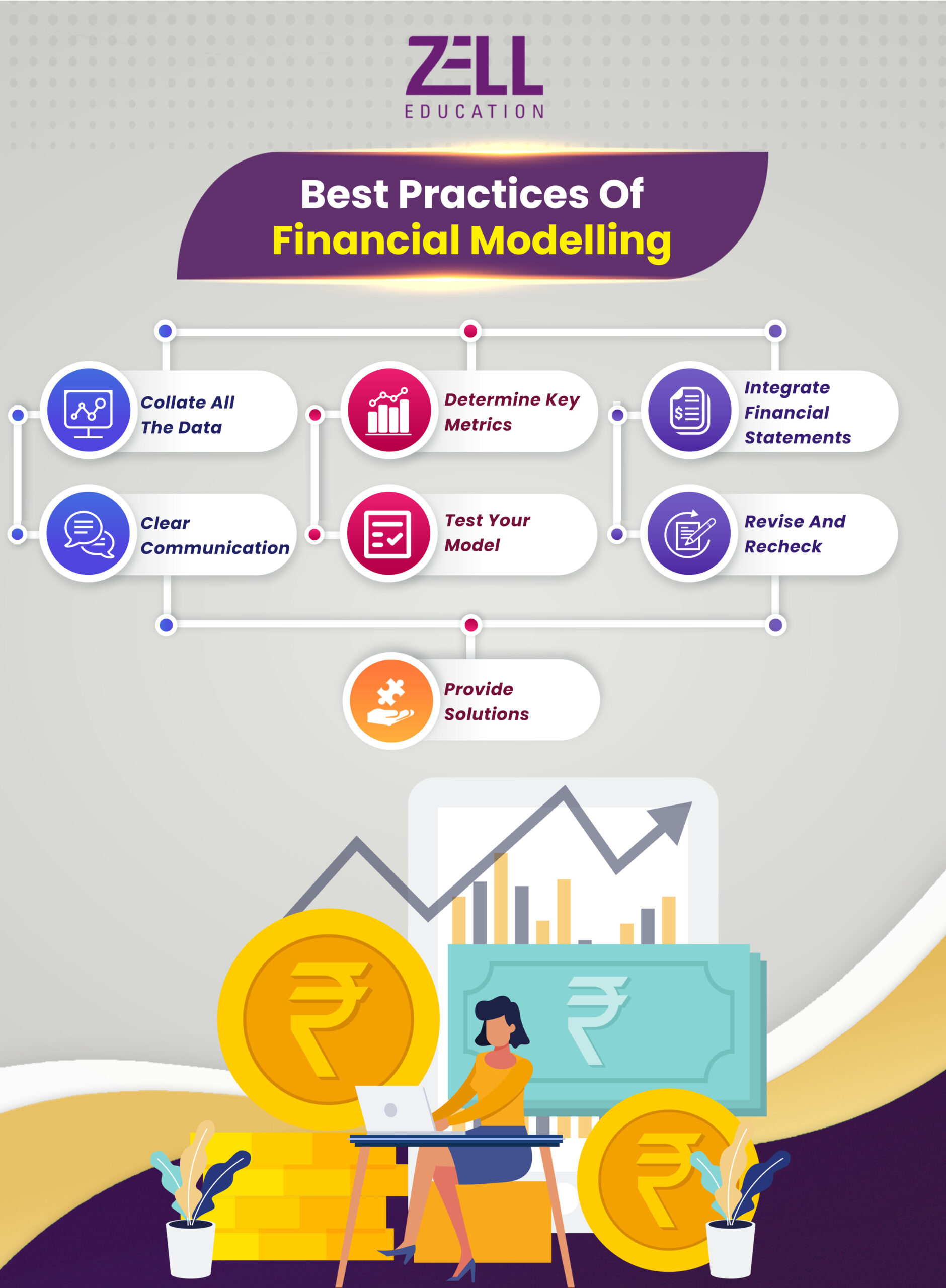How Financial Modelling Can Help MBA Freshers
The job growth in management occupations will likely expand by 8% from 2021 to 2031, faster than the overall average. Firms of all sizes recruit MBA graduates for the smooth functioning of their businesses. Be it FMCG, banking, health, IT, or e-commerce, MBA graduates are needed everywhere.
One of the most crucial skills MBA graduates must have is financial modelling. The benefits of financial modelling are multifold. It helps a company in several ways by giving a clear picture of its financial future and the past.
Mastering financial modelling with MBA is indispensable in today’s business landscape. Acquiring the traditional MBA skill set with financial modelling can give your career the boost it needs. To know more about how financial modelling can help, read our blog on “Top 7 Ways A Financial Modeling Course Will Boost Your Career”.
What Is Financial Modelling?
Financial modelling remains one of the most crucial yet neglected skills for MBA students. To understand financial modelling, you will need a sound understanding of Microsoft Excel. Precisely, a financial model is a spreadsheet that is mainly created in Microsoft Excel.
This spreadsheet estimates a company’s future financial positions. Insights reached using this data are primarily based on the company’s historical performance and future predictions, necessitating the development of an income statement, cash flow statement, balance sheet and accompanying schedules. These models are designed to help executives make critical business decisions.
Advantages of Financial Modelling
Here are some advantages of financial modelling:
1. Gives business insights
A financial model can only be created if the business has been minutely observed and evaluated. Analysts understand how a firm runs and the various aspects that may impact it with the help of financial modelling.
Companies that create financial models understand their business and the elements that affect it better than their competitors. Additionally, they are better prepared to tackle unforeseen circumstances that might threaten the company’s financial health.
2. Risk minimisation
All businesses must strive to minimise risks. A financial model helps in this regard by predicting the financial impact of a given operation. Hence, it assists firms in minimising and avoiding risk.
3. Facilitates company growth
Having a sound understanding of a business will always keep the company’s decision-makers ahead of their game. Financial models assist businesses in growing by identifying areas that have the potential to generate larger earnings. Businesses can use financial models to direct the ideal investment areas and determine the investment in particular sectors and projects to attain profitability and growth.
4. Helps companies raise investments
Businesses require a clear and precise financial statement to demonstrate its need for any monetary investment. In such scenarios, the company must be able to offer real-time data to demonstrate the current financial status of the firm. Financial modelling can give investors and banks a precise valuation of the company so that they can raise investments or loans.
5. Enables quick decision-making
Going over months of data to solve important financial problems is tiring. It drains resources and valuable time that could be invested in more productive tasks. Financial models produce findings quickly, which aids in data-driven decision-making.
6. Assists in business evaluation
The variance analysis is essential for understanding how a business is operating. Financial models assist in variance analysis by assessing the company’s actual outcomes and budgets. Some advanced accounting models help businesses make operational changes based on variance analysis to enhance overall earnings.
Top Financial Modelling Skills of 2024
Specific skills are critical for MBA graduates to understand and create financial models. Here are some skills that MBA graduates must master to efficiently carry out financial modelling:
1. Accounting
Any MBA student looking to ace financial modelling must have a strong hold on finance and accounting fundamentals. They must be able to calculate the impact of a company’s future decisions or events on its performance and operations using accounting information and financial documentation.
2. Presentation
A Financial Modellers’ job role entails a lot more than analysis. They are in charge of simplifying complex insights and presenting them in a manner that is simple to understand for business owners and other stakeholders.
3. MS Excel
Financial modelling requires expertise in Microsoft Excel. When handling enormous data for the company, a Financial Modeller must be aware of all the shortcuts, formulas and functions of Excel for quick and accurate financial analyses for the company.
4. Forecasting
A Financial Modeller must be able to make predictions based on data analysed. They must have strong analytical skills and foresight to forecast outcomes based on the business’s past and current data.
5. Technology
All professionals must be tech-savvy in today’s fast-changing world. Spreadsheets, presentations, data analysis, storage, and visualisation tools are some of the latest technologies that any Financial Modeller must be familiar with.
How Financial Modelling Can Help MBA Freshers
The importance of an MBA fresher with sound financial modelling skills in a company is unfathomable. Candidates can ensure access to better employment opportunities in top companies with strong financial modelling skills. From investment banking and equity research to risk management, if you know how to develop a financial model, your value and demand will increase to employers.
Financial modelling can also expose MBA freshers to better pay packages. An average Financial Modeller can earn about Rs. 9,00,000 LPA. These reasons are good enough for aspirants to consider this lucrative field.
Wrapping Up
The skills taught in financial modelling and a Chartered Financial Analyst (CFA) course are pretty similar. If you want to learn about the skills that are common to both, head to our blog “How is CFA Related to Financial Modeling”.
Skills like risk management and analysis, accounting, and forecasting are common in financial modelling and CFA Certification. Zell Education is the one-stop platform to master financial modelling and become a successful Chartered Financial Analyst. With an all-encompassing and personalised study plan, engaging online sessions, and mentoring from distinguished teachers, Zell ensures the comprehensive development of skills. Contact us right away to learn more about our courses.
FAQs
1. Does MBA teach financial modelling?
Yes. MBA courses do teach financial modelling.
2. Can I get a job after doing financial modelling?
You will get a plethora of exciting job opportunities after learning how to do financial modelling. A Financial Modeller has a broad scope, from investment banks and equity research firms to risk management firms.
3. Is financial modelling a useful skill?
Financial modelling is a skill that will give you the edge you need to advance in your career. It is a valuable skill one can learn while pursuing an MBA.
4. What are the benefits of financial modelling?
The benefits of financial modelling are multifold. It helps in a better and more in-depth understanding of the business, risk minimisation, and business valuation, among others.










